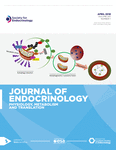Thyroid hormone metabolism in innate immune cells
- Correspondence should be addressed to A Boelen; Email: a.boelen{at}amc.uva.nl
Abstract
Thyroid hormone (TH) metabolism and thyroid status have been linked to various aspects of the immune response. There is extensive literature available on the effects of thyroid hormone on innate immune cells. However, only recently have authors begun to study the mechanisms behind these effects and the role of intracellular TH metabolism in innate immune cell function during inflammation. This review provides an overview of the molecular machinery of intracellular TH metabolism present in neutrophils, macrophages and dendritic cells and the role and effects of intracellular TH metabolism in these cells. Circulating TH levels have a profound effect on neutrophil, macrophage and dendritic cell function. In general, increased TH levels result in an amplification of the pro-inflammatory response of these cells. The mechanisms behind these effects include both genomic and non-genomic effects of TH. Besides a pro-inflammatory effect induced by extracellular TH, the cellular response to pro-inflammatory stimuli appears to be dependent on functional intracellular TH metabolism. This is illustrated by the fact that the deiodinase enzymes and in some cell types also thyroid hormone receptors appear to be crucial for adequate innate immune cell function. This overview of the literature suggests that TH metabolism plays an important role in the host defence against infection through the modulation of innate immune cell function.
- Received 4 November 2016
- Accepted 13 November 2016
- Made available online as an Accepted Preprint 16 November 2016
- © 2017 Society for Endocrinology











